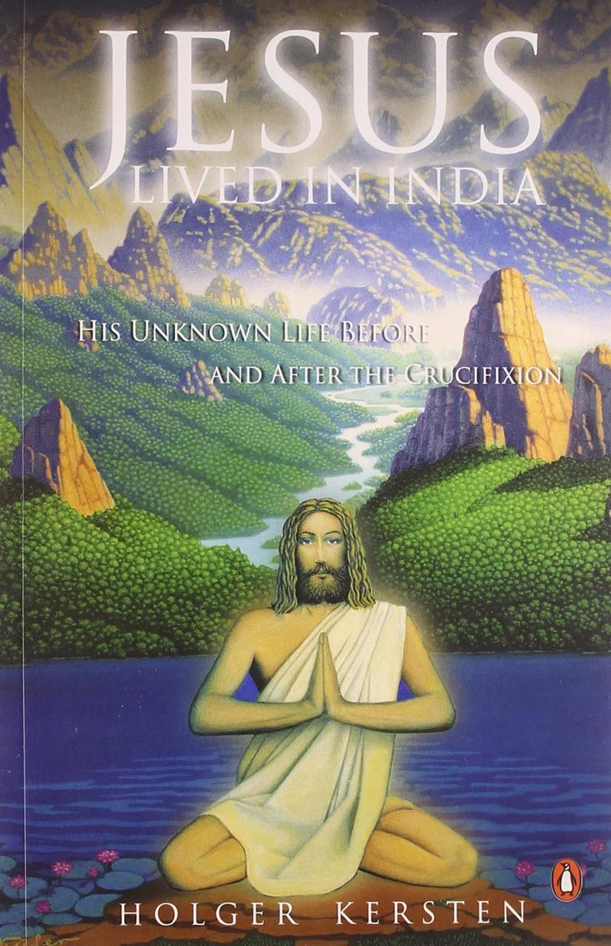While on a visit to India these days, I see quite a bit of Christmas decorations from the airport to the markets. More than a religion it has become a tradition in India to celebrate Christmas. Religious conflicts aside, cultural celebrations of all the sections and regions of the world society need to be recognized and celebrated with full respect and appreciation. If one can find additional reasons to supplement such celebrations, so much better.
With children we celebrated Christmas culturally in the United States, and decorate it with Devī-Devatā decorations instead of Santa Clause. Further, since it is also a celebration with light, we actually installed the Christmas tree on the Diwali Day, and kept until Makar-Sankranti January. Diwali has assumed a major international dimension for a variety of reasons, including its similarity with Christmas lights and exchange of gifts, and it being celebrated at the White House as well. Some think it is a form of appropriation of Christmas for Diwali. Well, in that case the Christmas tree and even the Christmas itself is a misappropriation of the Pagan celebration of Winter solstice that they used to celebrate to welcome winter by worshipping the evergreen Balsam Fir (the Christmas) tree.
In fact, for Indians it is not that difficult to appropriate Jesus Christ, Jesus being pronounced as ‘Ishā’, and similarity of Christ and Kṛṣṇa. sage – one which excited his audiences.
According an article at PBS.org, “although his message was proving popular, the claim of his disciples that Jesus was the son of God offended many people. What’s more, his ideas were revolutionary and threatened to undermine thousands of years of social tradition.”
Jerusalem, where Jesus once visited, was under the Roman rule. In around 33 AD, Jesus traveled to the city of Jerusalem for the Jewish ceremony of Passover. There were thousands of pilgrims from around the world and the temple provided services for them to change their foreign money or buy animals to sacrifice. Jesus was furious. He believed that trade like this corrupted the holy site. Roman authorities were upset with him, arrested him, and crucified him in public, to show their brutality against those ever opposed. His fault was that he sided with the masses who were being oppressed.
Did Jesus have any Indian connections? Of course, he did. A book by Holger Kersten clearly suggest Jesus was in India for several years, learning and practicing yoga in Kashmir. In addition to yoga, he may in fact learned tradition of standing up to oppression of people. Traditionally, those people are referred to as kshatriya in India, and what Jesus did in Jerusalem no less heroic and principled.
In fact, his behavior perfectly matches with the values of kshatriya described in Sṛīmadbhagvat Gīta-
शौर्यं तेजो धृतिर्दाक्ष्यं युद्धे चाप्यपलायनम् |
दानमीश्वरभावश्च क्षात्रं कर्म स्वभावजम् ||18.43||
śhauryaṁ tejo dhṛitir dākṣhyaṁ yuddhe chāpy apalāyanam
dānam īśhvara-bhāvaśh cha kṣhātraṁ karma svabhāva-jam
Valor, strength, fortitude, skill in weaponry, resolve never to retreat from battle, large-heartedness in charity, and Ishwara (tranquil in all condition) characteristics, these are the natural qualities of work for Kshatriyas.
The word, kshatra, comes of ksha = to destroy, and tra = oppressed. A kshatriya unshakingly will stay the ground, as was also demonstrated by Jesus Christ, thus making him naturally a kshatriya worthy of support by all. This revelation about Jesus Christ may sound far fetched but in reality, is very close to his behavior and determination. It may be worthwhile for Christians to follow the Jesus characteristics, rather than trying to convert people to their camp.
This description reminds me of an incident of my own encounter with an evangelist in my university who used to deliver goods from receivables. Francis Boetello was always hanging around with international graduate students trying to give them a Bible or entice them to a Church visit. One day I walked into the laboratory even as Francis was talking to students. As I entered the lab, a student told Francis jokingly “why don’t you convert Dr. Singh and we will all follow?” “So, Dr. Singh, what do you think?” I asked, “think of what?” Francis said, “think of Jesus Christ?” asked Francis turning towards me. “Jesus Christ was a great man, I am his ardent follower”, I replied. “So, you are a Christian?” Francis uttered hesitatingly. I said, “Sure, following Jesus Christ does make me a Christian, as much as following Newton makes me Newtonian.” Not convinced of my assertion, Francis continued with his inquiries further. “What church do you go to?” asked Francis. “What church did Jesus Christ go to?” I shot back, and Francis looked quite puzzled at this but continued his query by saying, “O, so you read Bible on your own“. “What Bible did Jesus Christ read?“, I asked Francis. He was completely at a loss. “How can you be a Christian without going to Church or reading a Bible?” he muttered shaking his head in exasperation. “Francis, I am not a Churchian or Biblian, I am a Christian“. By then Francis seemed to be in a daze, simply gazing at me. Acting professorial and assuring him of my genuine intentions I began. “Look, Jesus Christ was concerned about others passionately. He stood up for his principles against all odds. He was willing to die for his principle of serving others. He did not hate even those who killed him, and wished them well“. Francis nodded at each of my statements about Jesus Christ. “I think those principles are worth following for anybody“, I added. “Why do I need a Church or Bible to follow them?” By then Francis seemed accepting, albeit reluctantly.
Similarly, I am asked many times about religions in India, my own religion, and my opinion of Islam, especially after 9/11. At the Center for Indic Studies, we had much emphasis on Indic traditions, some ancient, some modern, and occasionally discussions about other traditions within India.
An Indian perspective based on the guṇa and karma to accept people’s inclination may actually be a healthy way to lead the life. And, Jesus Christ’s actions prove beyond any doubt for his kshatriya inclination!
Prof. Bal Ram Singh, President, Institute of Advanced Sciences, Dartmouth, USA






